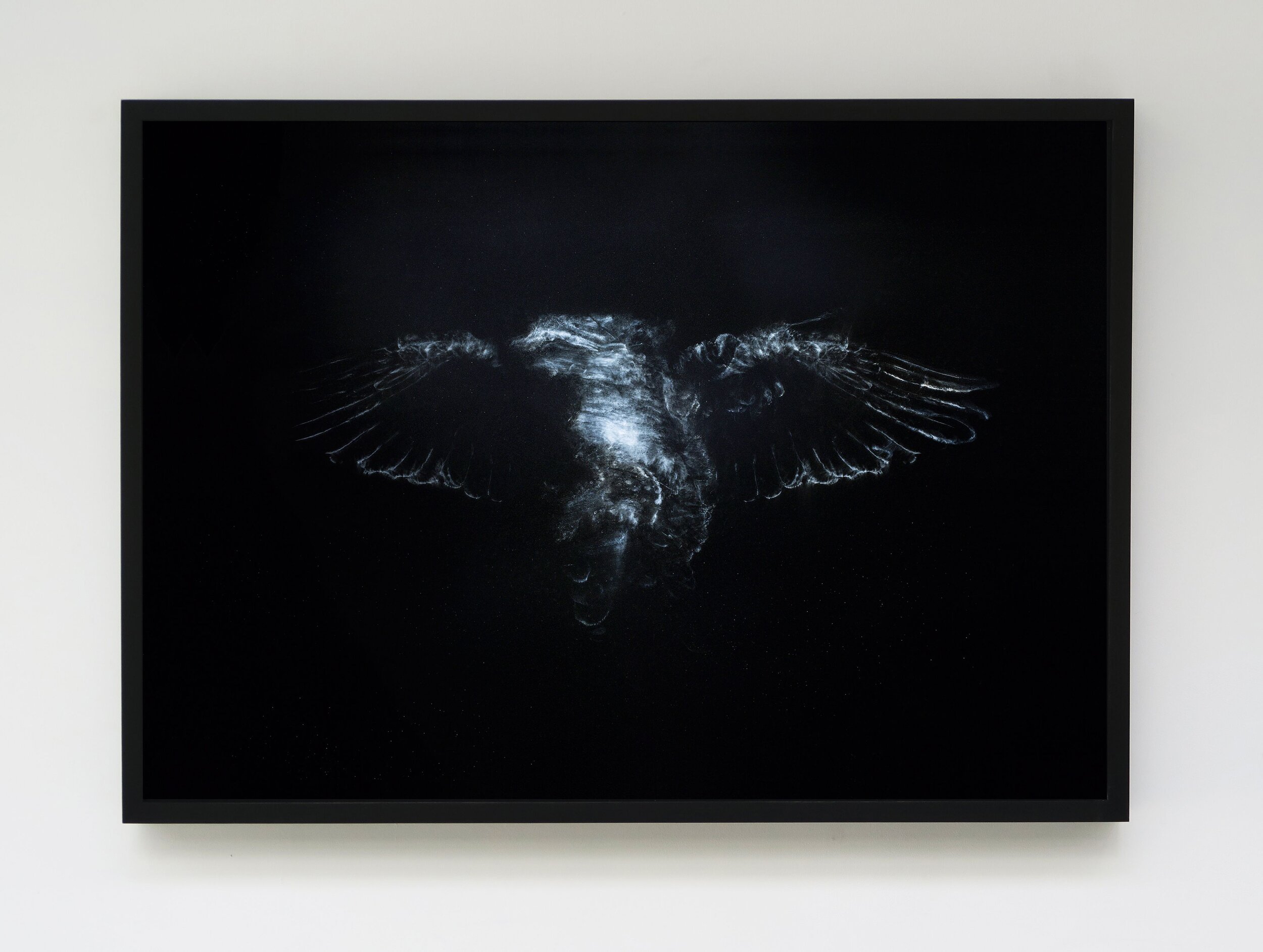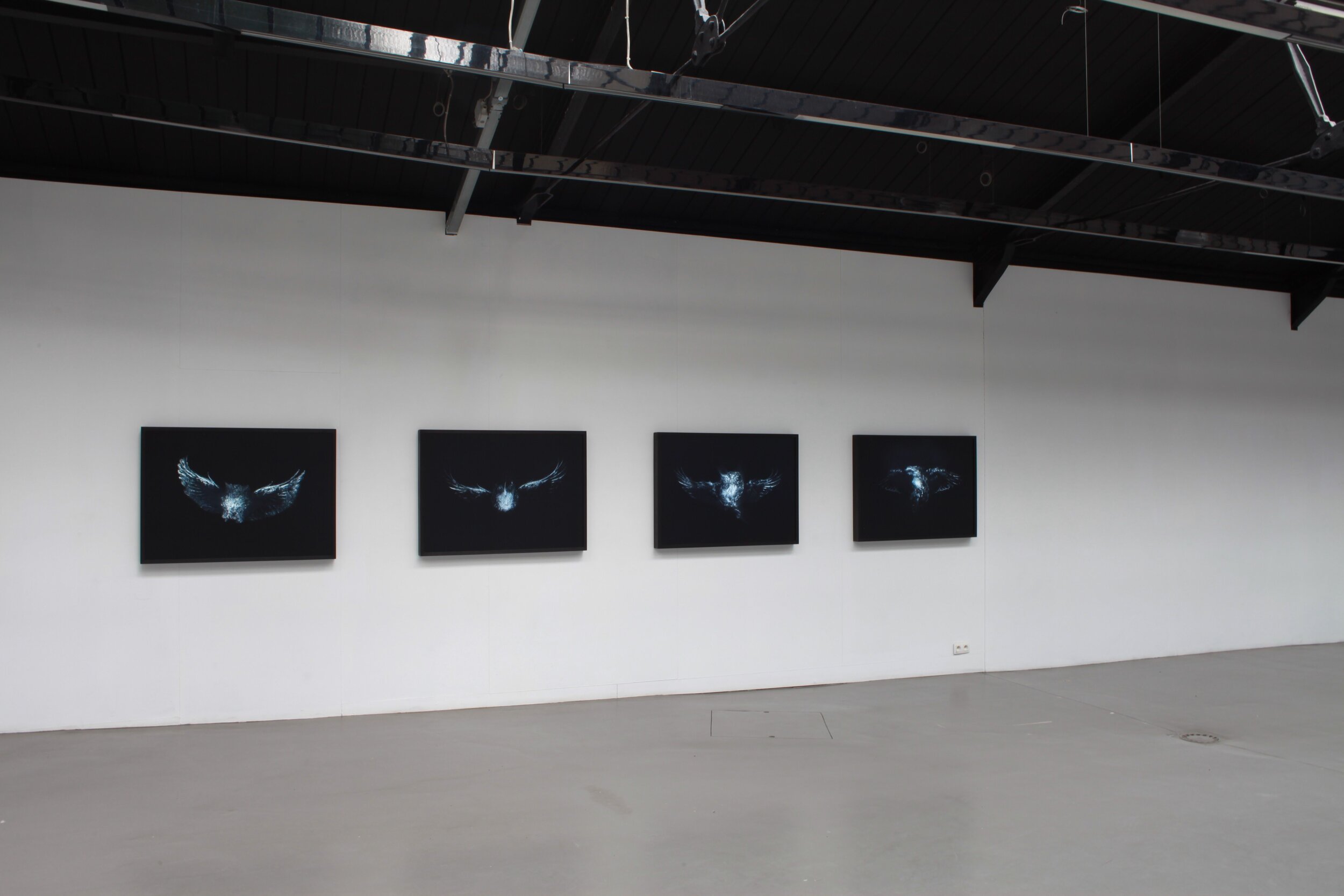
Owl is one of Douglas White’s best known and most significant works. It perfectly embodies White’s ability to see wonder and beauty in the accidental and the overlooked, and, through the most minimal and elegant interventions, reify these finds into extraordinary and enduring works of art. The backstory to Owl is a case in point.
One evening in June 2006 White was on his way to an exhibition opening. On his journey he picked up the Metro, a free London newspaper and saw an image that stupefied him. It showed the ethereal, dusty imprint left on a window after an owl had flown into it. The window belonged to a one Ray Pearce, a retiree in North of England. As soon as he read the related article, White immediately found an internet cafe on Oxford street and began looking for the phone numbers of all the Ray Pearce’s in the Wigston area of Leicestershire and calling each of them to track down this strange imprint. One Ray Pearce wasn’t answering. In the artist’s over-excited mind, this was because he must have been fielding so many calls from other people trying to get hold of his window. In truth he had been away at a funeral. White kept calling. A few days later he got through to Ray who agreed he could come and visit.
Douglas asked Sarah, his girlfriend to come with him, hoping that her presence might normalise what, he feared, would seem like a crazy request. They sat and took tea with Ray and his wife Nancy in their living room, the owl imprint hovering, ghost-like over them on their patio door. When Douglas mentioned he wanted to take away their patio door in which the imprinted window was embedded, their faces changed. ‘You said you were an artist, we thought you wanted to come and draw it’, they said. The meeting became an exercise in diplomacy and persuasion. Noting the religious iconography around the house, Sarah spoke of the wonders of God’s creations and how beautiful it would be to preserve it for posterity, but White sat there fearful the opportunity to collect and preserve this profound accidental mark of nature, was slipping away.
Should he tell the Pearces that he had already sourced quotes from local glaziers to replace the window? Should he offer to buy it? Deciding to play it cooler, White thanked Ray and Nancy for tea and their time and left, promising to call them soon. What tools does an artist need? Reflected on story around Owl and the delicate task of convincing an elderly couple to part with their patio door into which an owl has flown, White has come to believe that persuasion might be one of the most important.
The French windows had only been installed just a year earlier and in their next call Ray was impressed that White had already sourced quotes from the company who had made them. Ray wasn’t interested in being paid for the window, but was happy to accept a donation to Gideons International on their behalf. So White had his imprinted door.
The next step was working out how to preserve the imprint. After all this effort Douglas had no idea if the imprint would even survive the journey back to London, let alone another week, month, year. Speaking to museum conservators, ornithologists and natural historians, everyone had thoughts, but no-one was comfortable offering definitive advice having never worked with anything similar. In the end, the most confident advice came from a company called CSI (Crime Scene Investigations) who were experienced in the preservation of a multitude of different imprints, traces and residues, who recommended that White simply protect the imprint by adding a further layer of glass over the imprint, effectively creating a triple-glazed patio door. ‘Owl’ (2006) was displayed at Paradise Row gallery near Brick Lane in White’s first solo show. He was touched that Ray and Nancy travelled down for the opening.










